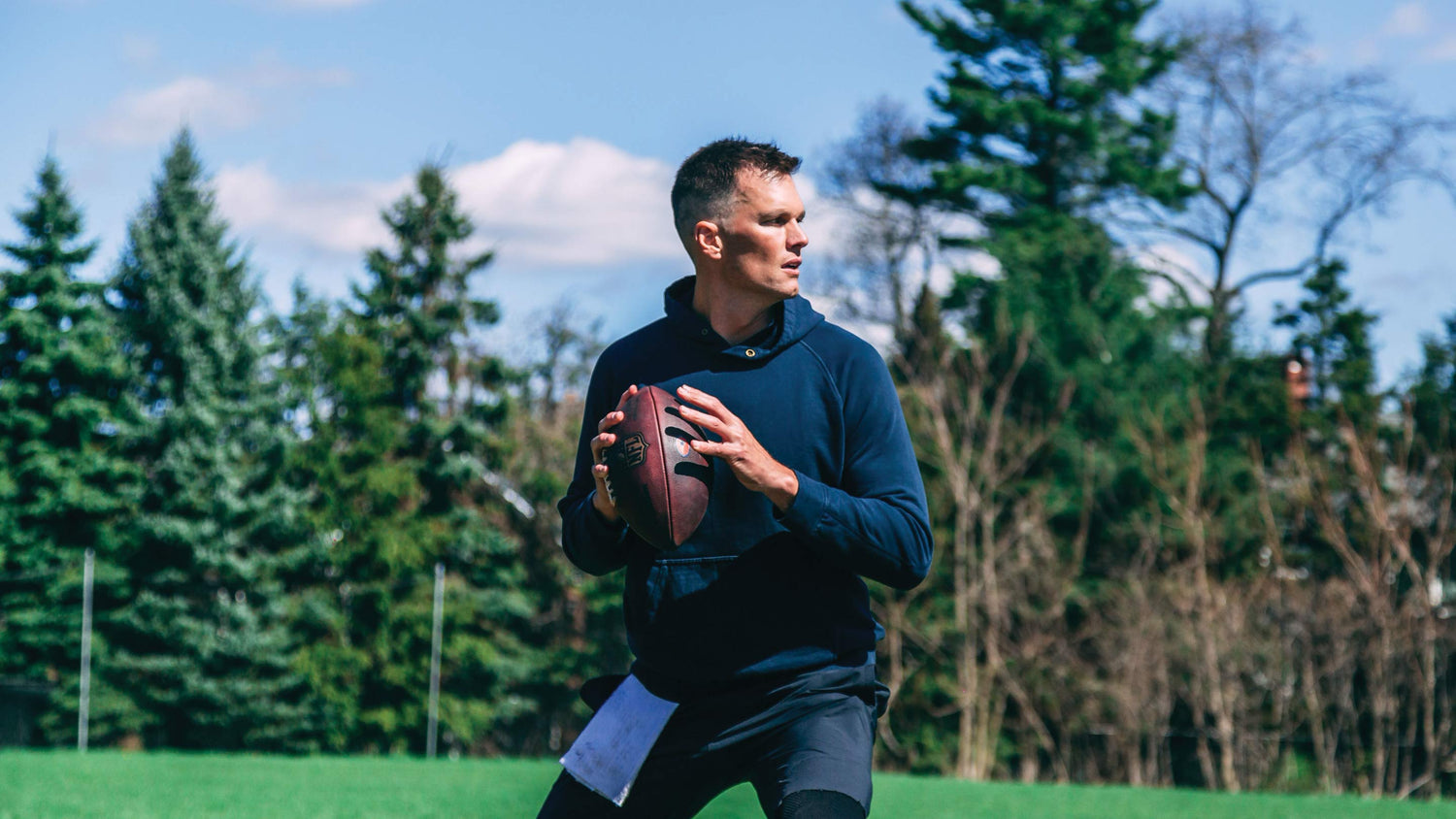Staying positive and determined when things don’t go as planned is a critical component of Tom Brady’s legendary mental toughness.
“During the football season, one of my biggest priorities was making sure I had the right mental toughness and attitude,” Tom says. “Mental toughness is centered on doing the best you can in the present while believing you can do even better in the future.”
In his book, The TB12 Method, Tom notes how important this mindset is when working to achieve peak performance — especially when facing a challenge or adversity.
“If things go my way, great; and if they don’t, that’s okay, too, since I always have a chance to overcome them in the future,” he adds.
“I don’t like to focus on negatives or make excuses. I am never a victim. I gain nothing if I get angry or frustrated. If I threw an interception or had a bad day, by staying in that place, I would just make things worse.”
4 Keys to Tom Brady's Mental Toughness
Here are four keys to Tom Brady’s mental toughness that you can apply in your own life.
1. Start each day with a positive outlook
“The right mindset and attitude give us opportunities to do the best we can and to realize the potential that’s in every one of us,” Tom says.
How do you build this principle into your own life? By taking action at the beginning of your day. When you wake up, consciously choose a positive outlook for the day ahead. If you believe in yourself, it leads others to believe in you.
2. Focus on giving your best effort
In addition to starting his day with a positive outlook, Tom likes to spend his day focusing on giving his best possible effort toward what he wants to achieve. He applies this simple tactic during games, for example. In his experience, pursuing maximum effort leads to a lasting feeling of satisfaction, regardless of the results.
“For me, it’s less about the outcome than it is about whether I put in the best effort relative to our team’s potential,” he says. “Some games we may win by a big margin, and in others, we may be outscored, but the ones I remember best are the closely fought games in which, no matter what the scoreboard says, our team put in our best effort.”
One of Tom’s favorite quotes on this principle comes from legendary UCLA basketball coach John Wooden: “Success is peace of mind which is a direct result of self-satisfaction in knowing you did your best to become the best you are capable of becoming.”
Expect the best from your day, and then give your best effort.
3. When something doesn't go your way, choose to stay positive
As you go through your day, it’s essential to know the difference between the things you can control and the things you can’t. If an event that’s out of your control doesn’t go your way, try to avoid sliding into anger and frustration, which are emotions that are firmly within your control. Choose to remain positive.
Tom relates this principle to a game. “You walk onto the field armed with various strategies, ideas, and hypotheses about how the game will play out, based on things you’ve studied. But in the end, you don’t know what’s going to happen.”
You may not have control over what happens. But, you can choose how you react.
4. Learn from losses
Rather than go into a dark place when things don’t work out, learn and grow from a negative experience, Tom advises.
“Whenever my team lost a game, it was an opportunity to learn something. If we’ve lost but I’ve learned something, the game turns into a positive experiment.”
Mental Toughness Over Time
Building these habits — starting your day with a positive attitude, focusing on effort, staying positive when things go wrong, and learning from losses — can turn mistakes into valuable lessons and failures into victories.
These are the foundations of Tom's approach to his football career, his business career, and his personal life. It allows him to channel his emotional intensity into a positive direction, even when things get bumpy.
“I’m not a robot,” Tom says. “I’m a very emotional person. But I’ve learned to use losses as ways to be better the next time. Usually, what I learn afterward, through review and self-reflection, is a greater positive than whatever benefits might have come from winning.”







